Are you tired of seeing ants crawling out of your sink every time you go to wash the dishes? It’s a common problem that many homeowners face and can be frustrating.
But fear not because this blog post will cover everything you need to know about identifying and treating ant infestations in your sink.
Ants are social insects living in colonies and are attracted to moisture and food, often found in sinks. They can enter your sink through small cracks, crevices, pipe gaps, or the sink itself. But why do ants come out of your sink in the first place?
Keep reading as we dive into why ants come out of your sink, the signs of ant infestation, and effective ways to get rid of ants in your sink.
By the end of this post, you’ll have all the tools you need to say goodbye to those pesky sink-dwelling ants. So, let’s get started!
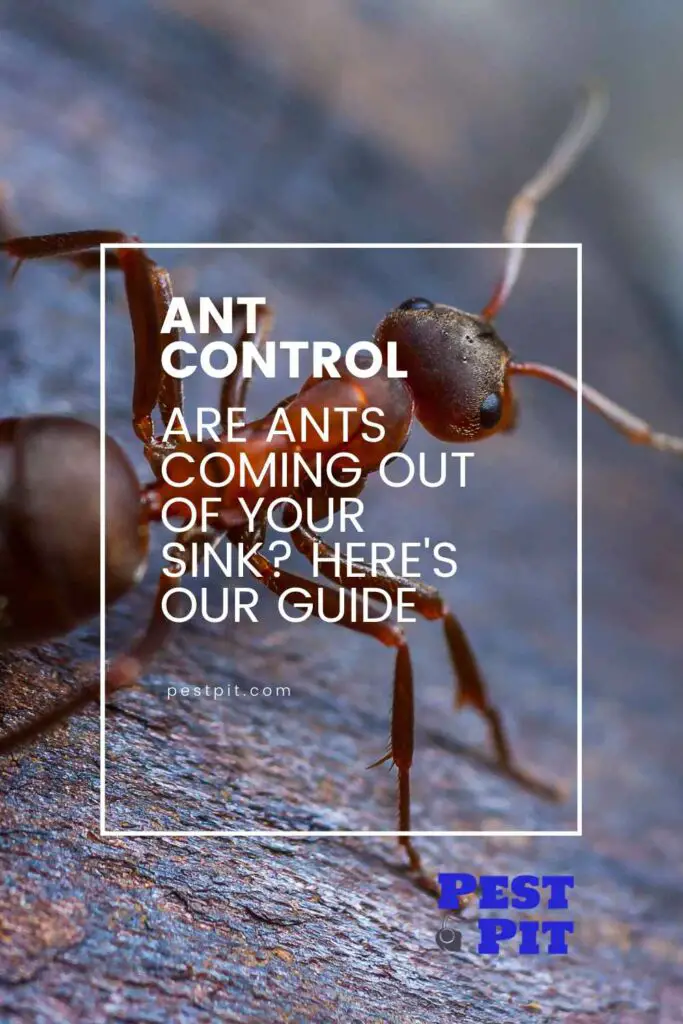
Why Do Ants Come Out of Your Sink?
Ants are fascinating creatures with complex social structures and behaviors. They communicate through pheromones and work together to forage for food and water.
When they find a source of either, they leave a scent trail to guide their colony members to the location.
So, what attracts ants to the kitchen sink or bathroom drains?
This attracts ants to sinks – they are often moist and offer a potential food source.
Whether it’s a leaky faucet, damp dish towels, or leftover food scraps, ants can easily find their way to your sink. Once they do, they will leave a trail of pheromones for other ants to follow, which can lead to a full-blown infestation if not addressed promptly.
Common types of ants found in sinks include pavement ants, which are small and brown, pharaoh ants, which are yellow or light brown and have multiple queens; and carpenter ants, which are larger and can cause damage to wooden structures.
While these ants have different preferences for food and nesting areas, they all share a love for moisture and can be found in sinks.
Ants can enter your sink through small cracks, crevices, pipe gaps, or the sink. They can also climb up walls or cabinets to reach the sink. Sometimes, ants may already have a nest nearby, and the sink provides an accessible water or food source.
Now that we’ve covered why ants come out of your sink let’s dive into how to identify if you have an ant infestation in your sink.
Signs of Ant Infestation in Your Sink
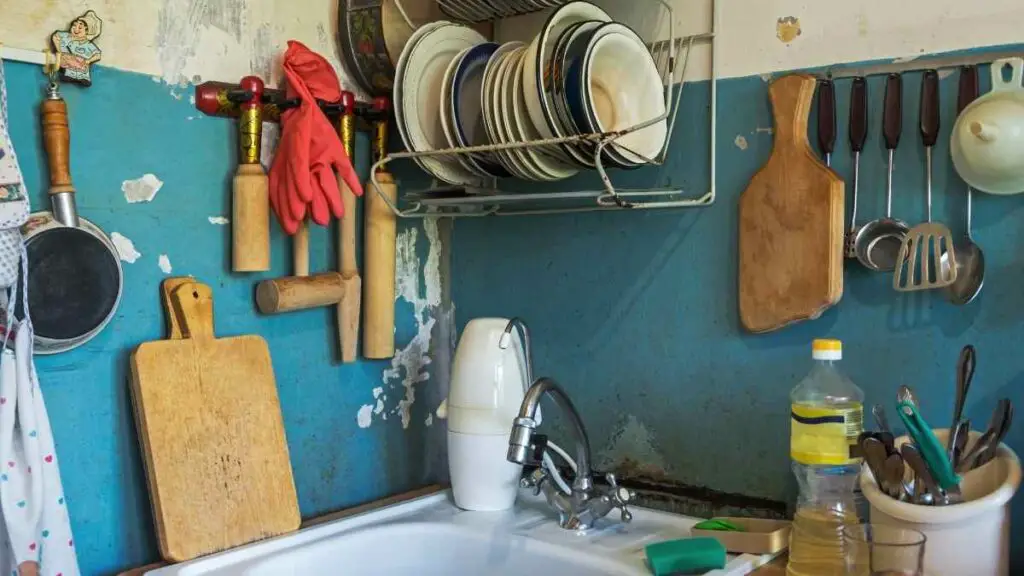
Identifying an ant infestation in your sink can be tricky, as ants are small and often only visible when actively foraging for food or water. However, a few signs to look out for can indicate an ant problem in your sink.
Presence of Ants
The first sign is the presence of ants themselves. If you see ants crawling out of your sink or around your kitchen area, there’s a good chance that you have an ant infestation. Take note of the type of ants you see, as different types of ants, may require different treatments.
Ants Trails
Another sign of an ant infestation is the presence of ant trails. Ants leave a scent trail behind them as they move, and if you see a line of ants moving to and from your sink, there’s likely a nest nearby. Follow the trail to locate the nest, which can help you determine the best way to treat the infestation.
Dirt or Debris
You may also notice small piles of dirt or debris near your sink. This could indicate ants excavating a nest in the walls or under the sink. Additionally, seeing winged (flying ants) could signify an established colony looking to expand.
Damaged Wood Structure
Finally, if you notice any damage to wooden structures in your kitchen or bathroom, this could be a sign of carpenter ants.
These ants can cause significant damage to wooden structures, and if left untreated, they can compromise the structural integrity of your home.
If you suspect an ant infestation in your sink, it’s important to take action as soon as possible to prevent the problem from worsening.
The next section will cover effective ways to eliminate ants in your sink.
Effective Ways to Get Rid of Ants in Your Sink
When it comes to treating an ant infestation in your sink, there are several effective methods that you can try. The best approach will depend on the type of ants you are dealing with, the severity of the infestation, and your personal preferences.
Here are some methods that you can use:
Keep your sink clean and dry
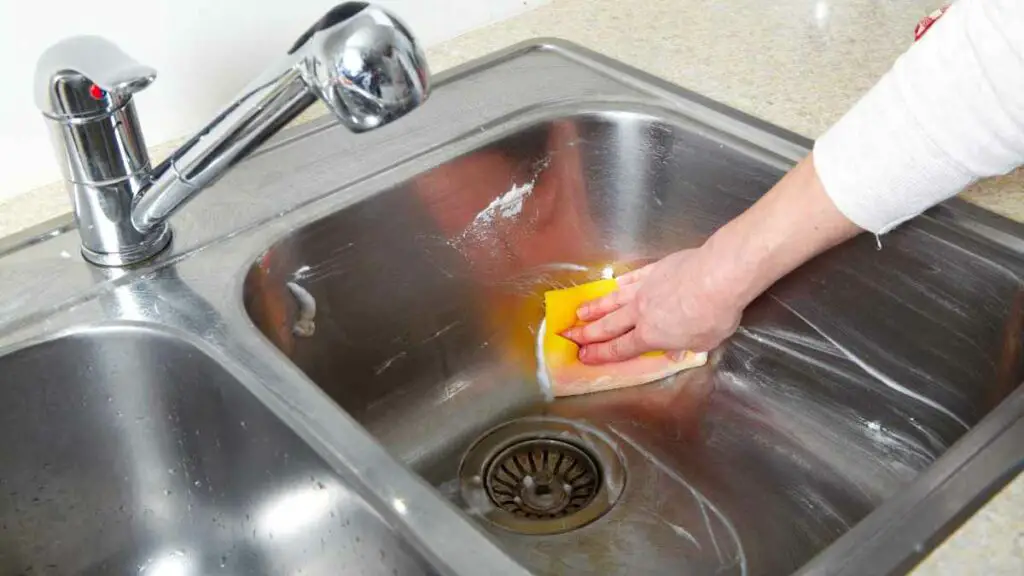
The first step in preventing and treating an ant infestation in your sink is to keep it clean and dry. Ants are attracted to moisture and food particles, so it’s essential to promptly wipe down your sink after each use and fix any leaks or drips.
Avoid leaving dirty dishes or food scraps in the sink, as these can attract ants. Keeping your kitchen clean and well-organized can also help prevent ant infestations from developing in the first place.
Use natural repellents
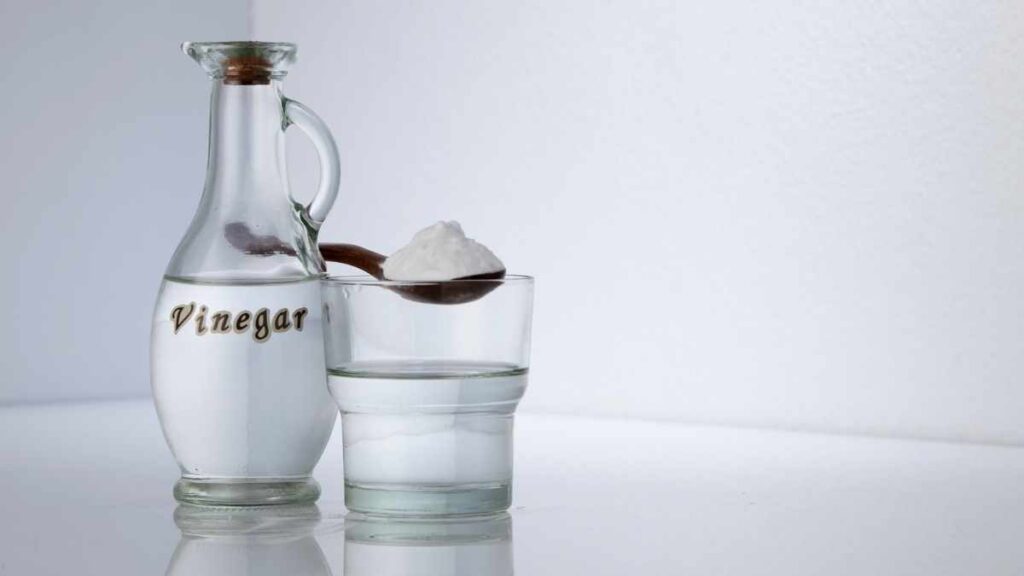
Several natural repellents can help repel ants from your sink drain. The most effective options include peppermint, vinegar, tea tree oil, baking soda, cinnamon, and citrus peels.
These natural repellents are safe and non-toxic to humans and pets and can be more eco-friendly than chemical pesticides. Mix these ingredients with water, put the mixture in a spray bottle, then spray around your sink and kitchen area.
The strong scent of these natural repellents can interfere with the ant’s sense of smell, making it harder for them to navigate to your sink.
Set ant baits
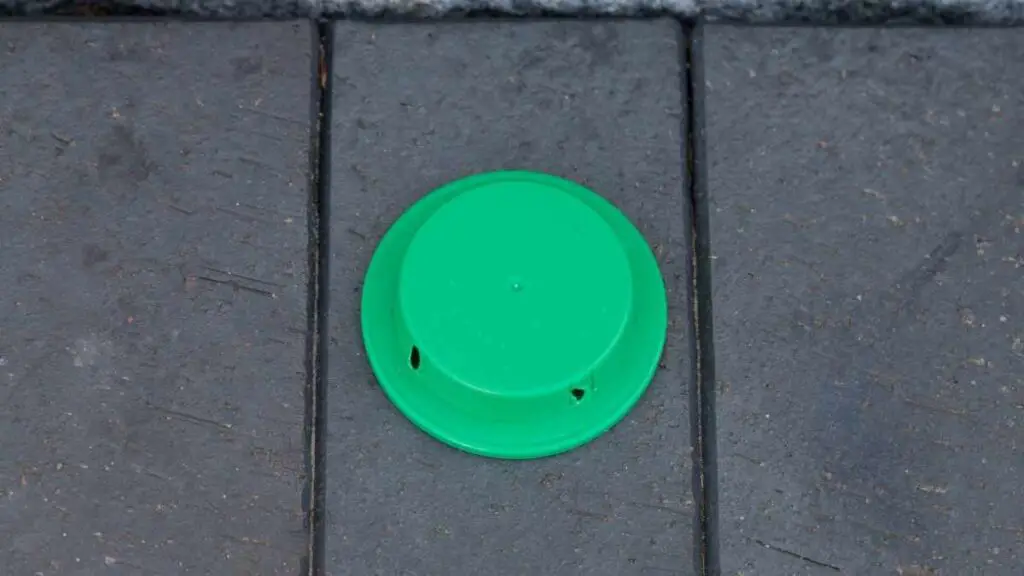
Ant baits are an effective way to target the source of the ant infestation. These baits contain a poison that the ants will take back to their nest, which can help to eliminate the entire colony.
The critical advantage of ant baits is that they do not just help to kill ants individually, they eliminate the entire ant colony.
Be sure to place the bait near the ant trail and avoid disturbing the ants while feeding. The ant bait may take several days or even weeks to be effective, as the ants need to bring the poison back to the colony.
Hire a professional exterminator

If you have a severe ant infestation or are dealing with carpenter ants, it may be best to hire a professional exterminator. They can assess the situation and recommend the most effective treatment option.
Professional exterminators can access specialized equipment and pesticides that may be more effective than DIY methods. They can also provide ongoing monitoring and maintenance to ensure the ant infestation does not return.
It’s important to note that while DIY methods and natural ant killer(s) (like white vinegar, boric acid, and hot water) can be effective, they may not always work for every situation. So, if you have tried several methods and still have an ant infestation in your sink, it’s essential to seek professional help to prevent the problem from worsening.
Professional exterminators can also advise how to prevent ants from coming out of your bathroom drain in the future.
Conclusion
Ant infestations in your bathroom sink can be a frustrating and unsanitary problem to deal with.
But if you understand why ants come out of your sink and can identify the signs of an infestation, your ant problem is half-solved. And with some of the effective treatment methods listed above, you can say goodbye to those pesky ants for good.
Remember to clean and dry your sink, use natural repellents and ant baits, and seek professional help. With a little effort and persistence, you can eliminate ants from your sink and enjoy a clean and pest-free home.
Good luck!







My infestation is by small grown ants.